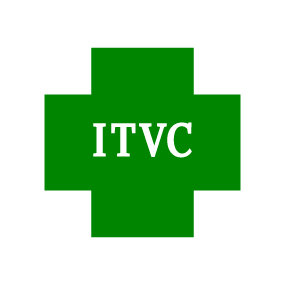Information about the Ebola Virus
Epidemiology and surveillance The total number of probable and confirmed cases in the current outbreak of Ebola virus disease (EVD) in the four affected countries as reported by the respective Ministries of Health of Guinea, Liberia, Nigeria, and Sierra Leone is 3069, with 1552 deaths. The outbreak continues to accelerate. More than 40% of the total number of cases have occurred within the past 21 days. However, most cases are concentrated in only a few localities. The overall case fatality rate is 52%. It ranges from 42% in Sierra Leone to 66% in Guinea. A separate outbreak of Ebola virus disease, which is not related to the outbreak in West Africa, was laboratory-confirmed on 26 August by the Democratic Republic of Congo (DRC) and is detailed in a separate edition of the Disease Outbreak News.
World Health Organization says Ebola cases underreported, may eventually hit 20,000
A new plan by the U.N. health agency to stop Ebola also assumes that the actual number of cases in many hard-hit areas may be two to four times higher than currently reported. If that's accurate, it suggests there could be up to 12,000 cases already.
"This far outstrips any historic Ebola outbreak in numbers. The largest outbreak in the past was about 400 cases," Dr. Bruce Aylward, WHO's assistant director-general for emergency operations, told reporters.
"What we are seeing today, in contrast to previous Ebola outbreaks: multiple hotspots within these countries — not a single, remote forested area, the kind of environments that have been tackled in the past. And then not multiple hotspots within one country, but international disease."
In Geneva, the agency released a new plan for handling that aims to stop Ebola transmission in affected countries within six to nine months and prevent it from spreading internationally.
The plan calls for $489 million to be spent over the next nine months and requires 750 international workers and 12,000 national workers.
The goal is to take "the heat out of this outbreak" within three months, he said. That will enable WHO to start using classic containment strategies to stop transmission altogether.
The next goal, Aylward said, is to be able to stop transmission within eight weeks of a new case being confirmed anywhere. "That is extremely aggressive but that can be done. It has been done in remote forested areas; it has not been done in urban areas."
The third major goal is to increase the preparedness for dealing with Ebola in all nations that share borders with affected countries or have major transportation hubs, he said.
The 20,000 cases figure, said Aylward, "is a scale that I think has not ever been anticipated in terms of an Ebola outbreak."
"That's not saying we expect 20,000," he added. "But we have got to have a system in place that we can deal with robust numbers."
Air France on Wednesday canceled its flights to Sierra Leone, but Aylward said the agency is urging airlines to lift most of their restrictions about flying to Ebola-hit nations.
"This is absolutely vital," he said. "Right now there is a super risk of the response effort being choked off, being restricted, because we simply cannot get enough seats on enough airplanes to get people in and out, and rotating, to get goods and supplies in and out and rotating, so this is a big part of what has got to be sorted."
Nigerian authorities, meanwhile, said a man who contracted Ebola after coming into contact with a traveler from Liberia had evaded surveillance and infected a doctor in southern Nigeria who later died.
The announcement of a sixth death in Nigeria marked the first fatality outside the commercial capital of Lagos, where a Liberian-American man, Patrick Sawyer, arrived in late July and later died of Ebola. On Wednesday, Nigerian authorities said they have not yet eliminated the disease from Africa's most populous nation but that it was being contained.
The doctor's wife is in isolation after she started showing symptoms of Ebola, Nigerian Health Minister Onyebuchi Chukwu added. Morticians who embalmed the doctor are part of a group of 70 people now under surveillance in Port Harcourt.
On Thursday, the U.S. National Institutes of Health announced it will start testing an experimental Ebola vaccine in humans next week. The vaccine was developed by the U.S. government and GlaxoSmithKline and the preliminary trial will test the shot in healthy U.S. adults in Maryland. At the same time, British experts will test the same vaccine in healthy people in the U.K., Gambia and Mali.
The vaccine trial was accelerated in response to the outbreak. Preliminary results to determine if the vaccine is safe could be available within months.
"There is an urgent need for a protective Ebola vaccine, and it is important to establish that a vaccine is safe and spurs the immune system to react in a way necessary to protect against infection," said NIAID Director Dr. Anthony S. Fauci, in a statement.


